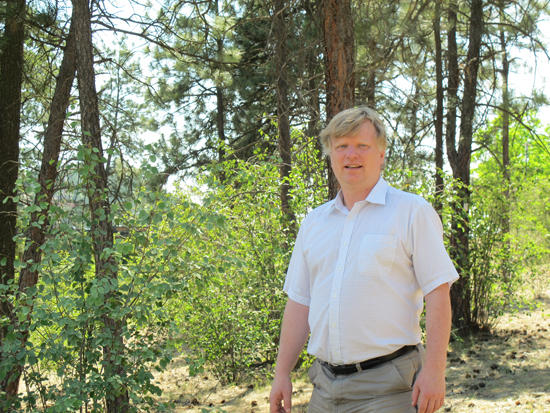
Back from left: lRob Deardon, Tyler Williamson and Herman Barkema. Front: Karen Kopciuk and Hua Shen
O’Brien Institute for Public Health
April 11, 2017

Back from left: lRob Deardon, Tyler Williamson and Herman Barkema. Front: Karen Kopciuk and Hua Shen
O’Brien Institute for Public Health
For a group of University of Calgary biostatisticians, a recently awarded Canadian Statistical Sciences Institute (CANSSI) designation is a big step toward achieving big dreams in big data.
The Rocky Mountain Data Science Training Centre — an initiative by the University of Calgary Biostatistics Centre (UCBC) aimed at developing training programs to lead the country in the field of big data education and research — has just been designated a CANSSI Health Sciences Collaborating Centre.
“Health data are not only there for the interaction between the patient and the doctor. They are also very valuable for research, which will ultimately lead to the improvement of the health of Albertans, and patients beyond,” says Dr. Herman Barkema, head of the UCBC, whose members will design and operate the newly named CANSSI Health Sciences Collaborating Centre.
Collecting, sifting through, and analyzing health data can inform health systems on how to improve performance and efficiency, shine a light on what public policies are hindering or improving the health of populations, and better identify which, and where, the next epidemic will be.
Collaborating centre to expose students to massive amounts of data
The centre, which lives within the O’Brien Institute for Public Health, is a multi-disciplinary, cross-faculty endeavour. It is made up of members from the University of Calgary’s faculties of Veterinary Medicine, Science, Nursing, Kinesiology, and Cumming School of Medicine (CSM), as well as researchers from Alberta Health Services and the University of British Columbia Okanagan, says Barkema, a veterinarian, epidemiologist, and professor at the Faculty of Veterinary Medicine.
It’s the centre’s geographic reach and aggressive recruitment efforts that caught their attention, CANSSI said in a statement.
“This initiative coincides with a major effort to grow biostatistics research and training at the University of Calgary, and recent hiring of strong new faculty in statistical sciences,” the letter states. “The proposal for the inter-university collaboration in this centre is also a strength of the application,” the statement continues, referencing the fact that the centre’s deputy director is John Braun, at UBC Okanagan.
The collaborating centre aims to plunge master's and doctoral students into the depths of big data, by exposing them to massive health data sets, real-world challenges, and cutting-edge methods. The goal is to improve the health of populations by teaching future scientists how to gather, assess, measure, and analyze data, explains Karen Kopciuk, PhD, senior member at the centre, and research scientist with the Department of Cancer Epidemiology and Prevention Research at Alberta Health Services.

W. John Braun, PhD, is head of Physics, Computer Science, Mathematics and Statistics.
University of British Columbia
The aim is to find meaning in data beyond its size
“Biostatistics brings not only the analysis and the method, but the design, the research studies that need to be done, and looks at the quality of the data. It’s not just about the quantity. There’s lots of data. The aim is to find the meaning in it,” says Kopciuk, who is also a member of the Arnie Charbonneau Cancer Institute.
The collaborating centre will have access to massive data sets from AHS, the BC Cancer Agency, as well as agricultural and animal health data, adds Kopciuk. Through practicum work, students will also work to solve real-world problems in Alberta and B.C., while learning under, and being guided by, national-level researchers at the UCBC.
Although the Rocky Mountain Data Science Training Centre is focused on graduate education, elevating its big data education to national levels will directly raise the quality of the research being conducted at the centre, says Rob Deardon. He designed the graduate program for the centre, and is an associate professor with the faculties of Veterinary Medicine and Science.
“This kind of program attracts high-quality graduate students, and high-quality graduate students lead to high-quality research,” he says.
“The training centre is going to give us the opportunity to attract more students and make it the go-to place for this type of training in Canada. They’ll get a solid theoretical education, but they will also be able to apply their knowledge in real-life projects that make a difference,” adds Kopciuk.
Technology improvements offer enhanced ability to analyze large amounts of data
Leaps in computing technology are at the heart of the explosive potential promised by big data, and its application to health challenges, explained Deardon.
“We’ve been doing these sorts of things for years, but the technology, in terms of the models and the computing power, has really ratcheted up over the last decade. We want to promote and further these developments through our training centre,” added Deardon.
The CANSSI collaborating centre designation is for three years but the centre can apply to have the designation renewed at that time.